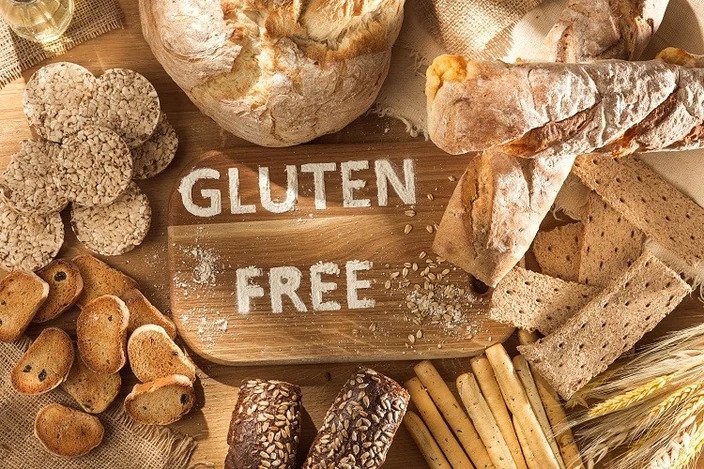Should Most People be on a Gluten-Free Diet?
Short Answer – Yes but there are good vs. bad gluten-free diets and foods.
Learn more now about why gluten-free can be great and how to avoid the bad diets.
Background
Gluten-free diets have really become popular but most people only have partial information, therefore, marketers and food manufacturers exploit this lack of knowledge so that you will purchase foods from them which you think are healthy and may provide temporary benefit but actually keep prolonging your health problems, destroy healthy gut bacteria (microbiota) and cause you to keep your excess weight. Additionally, websites promoting gluten-free recipes often are more interested in the number of ‘clicks’ they get which translates to income rather than purity of healthy recipes presented. They acquire more income if the recipes are deliciously loaded with sugar and fat (gluten-free donut holes for example) but unfortunately these don’t improve your health even though they are ‘gluten-free’. You need to switch from quick fixes and fads to honest science in order to truly become healthy.
Honest Science Basics
Gluten actually consists of a group of proteins found in several types of cereal grains like wheat (whether they are organic or not), rye, barley and triticale (which is made by crossing wheat and rye). The type of gluten in oats are not a problem for 99% of people (but if you have been diagnosed with celiac disease, please double-check this with your doctor). Gluten acts like a glue to give the dough its shape. People with celiac disease test positive for antibodies to gluten but you can have gluten intolerance even without testing positive for gluten antibodies. This is called Non-Celiac Gluten Sensitivity (NCGS) which is quite common but researchers aren’t sure how many people are actually affected by it. It may be as high as 30 – 50% of people. Additionally, there are other components in grains besides gluten which cause people to react with many symptoms and researchers are trying to narrow these components and other questions down.
What Foods Contain Gluten?
Unfortunately, because of food processing techniques, gluten is found in lots of foods besides grains that you’d never dream contain them, for example, salad dressings, sauces, soups, malt, beer, Brewer’s Yeast, milk shakes, and more.
What Does Gluten Do to People Who are Intolerant?
It increases inflammation in the digestive tract causing gut leaking of contents into the surrounding tissues and blood stream. Once these inflammatory molecules enter the blood stream, they can cause symptoms and health problems all over the body including the brain.
What Are Signs and Symptoms of Gluten Intolerance?
There are numerous symptoms both inside and outside the digestive tract. I’ll provide the signs and symptoms for both:
Digestive Tract Symptoms – Abdominal pain, bloating, diarrhea or constipation, foul-smelling stools, excessive bowel gas, and more.
Outside Digestive Tract Symptoms – Chronic fatigue, joint pain, muscle pain, fibromyalgia, ‘foggy mind’, headaches, skin rashes, depression, anemia, numbness and other nervous system disorders, difficulty with weight loss, anxiety, unexplained infertility, and more.
Honest Science Solution
As noted above, when you search the internet for gluten free diets and foods, there are lots of marketers who can’t wait to draw you in with delicious foods which may be strictly gluten-free but they are also harmful to the gut flora/microbiota which will just continue your gut leakage and inflammation for another reason. You’re simply trading one problem for another. This is why most people get stuck with their health problems and excess weight and can’t lose that weight and are constantly tired. They hop from one partial information fad to another but really aren’t truly benefiting their health. Please stop quick fixes and get the real complete information that will finally set you on the pathway to optimal health. That’s why I had to create the i60 Day Challenge. There is nothing out there like it. I provide real information it takes time but I also walk you through it simply every day for 60 days. This may be the most important 60 days of your and your family’s life and health. If you are tired of chronic pain, tiredness and feel stuck then I strongly encourage you to begin this journey with me today!

